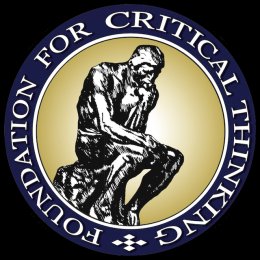
Whatever you are doing right now is determined by the way you are thinking. All your emotions—whatever you feel—are determined by your thinking. All your desires—whatever you want—are determined by your thinking. If your thinking is unrealistic, it will lead you to many disappointments. If your thinking is overly pessimistic, it will deny you due recognition of the many things in which you should properly rejoice.
Since few people realize the powerful role that thinking plays in their lives, few gain significant command of it. Most people are in many ways victims of their thinking; that is, they are hurt rather than helped by it. Most people are their own worst enemy. Their thinking is a continual source of problems, preventing them from recognizing opportunities, keeping them from exerting energy where it will do the most good, poisoning relationships, and leading them down blind alleys.
This course, as a whole, will introduce you to the tools of mind that will help you reason well through the problems and issues you face, whether in the classroom, in your personal life, or in your professional life. If you take these ideas seriously, and practice using them, you can take command of the thinking that ultimately will command the quality of your life.